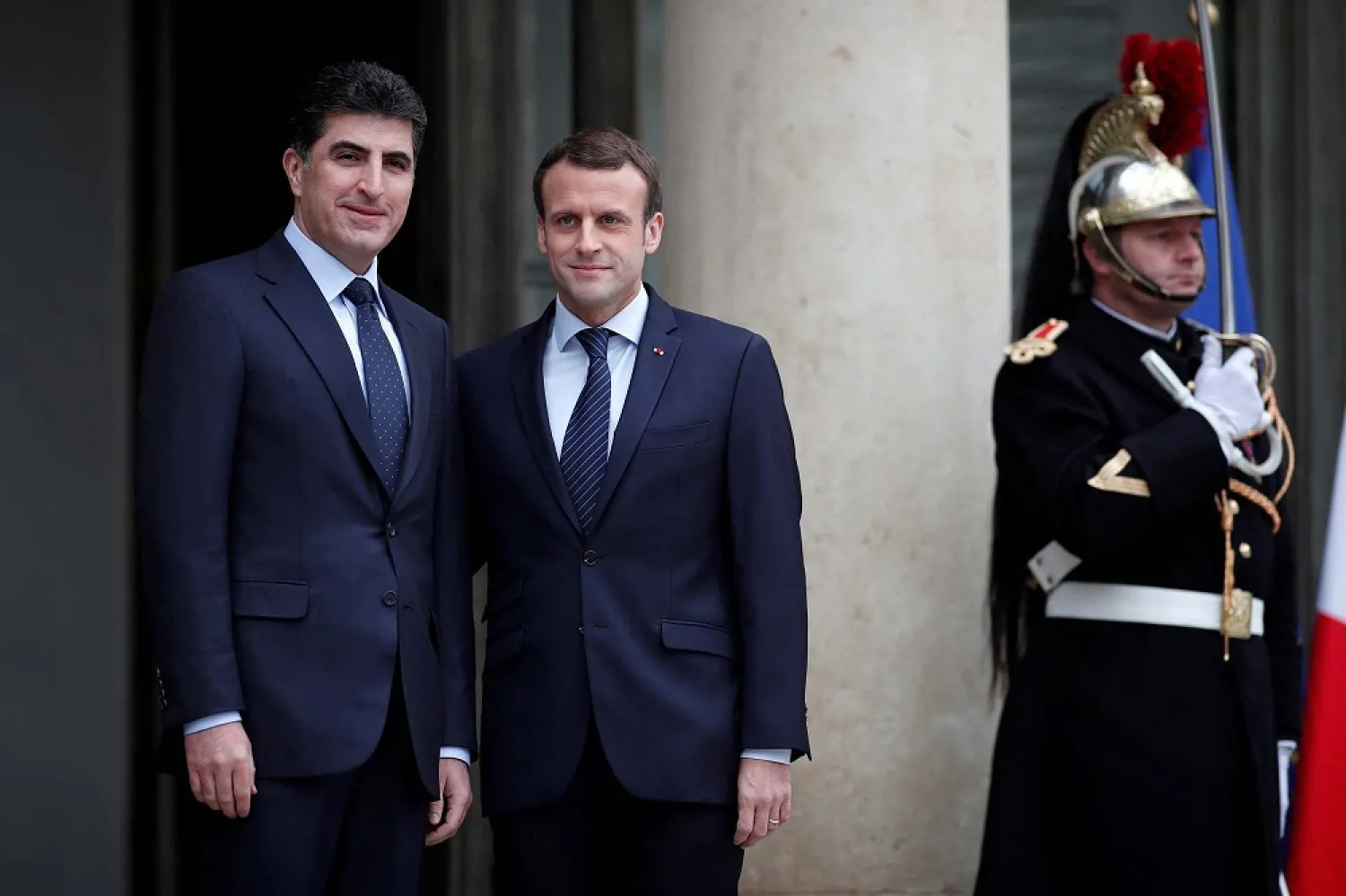French President Emmanuel Macron revealed on Saturday that he will inform Iraqi Prime Minister Haidar al-Abadi of concessions that Kurdish officials were willing to make in order to hold dialogue between Irbil and Baghdad.
He made his remarks during a press conference after holding talks with Iraqi Kurdistan Region Prime Minister Nechirvan Barzani and Deputy Prime Minister Qubad Talabani.
Responding to a question from Asharq Al-Awsat, Macron said that he will call Abadi to launch dialogue immediately and according to the commitments he had announced.
The French leader revealed that he would inform the PM of the details of his talks with Barzani.
Macron and Abadi had met in October when the latter paid a visit to the French capital.
Kurdistan is willing to accept the Iraqi central government’s control of the Region’s borders in what France believes is a sufficient concession to launch dialogue with Baghdad, said Elysee Palace sources.
Dialogue between Irbil and Baghdad is aimed at resolving pending issues between them in wake of the Kurdistan independence referendum.
Macron announced that Paris was at the two sides’ disposal in order for them to resolve their disputes and push political solutions forward.
“The rise of a strong Iraq that recognizes and respects all of its components is one of the conditions to achieve stability in the region,” he said.
Barzani’s visit to Paris was possible after Kurdish authorities agreed with the Iraqi government that he would stress Iraq’s unity and sovereignty and his willingness to make progress in ties with Baghdad, said the Elysee sources.
Macron meanwhile sees in Barzani and Talabani the future of Kurdistan. The PM is outgoing Kurdish President Masoud Barzani’s nephew and his deputy is the son of late Iraqi President Jalal Talabani.
The French president believes that the younger Barzani would be able to reach solutions to disputes between Irbil and Baghdad, stated the sources.
It remains unclear if Paris was preparing to host a Kurdish-Iraqi meeting similar to the summit it held in July that led to a political understanding between rival Libyan factions.
The truth is that Paris believes that it has a role to play in the Iraqi file because it enjoys good ties with Baghdad and Irbil.
This position was voiced by Barzani, who said that his government was looking positively to the role that France can play in resolving problems with Baghdad.
The sources said that Paris ultimately would like to act as “facilitator” between Iraq and Kurdistan. To that end, it is holding talks with both Turkey and Iran regarding the Kurdish file.
France will base its efforts on Iraq’s right to the unity of its land, as well as its respect of the 2005 constitution and articles on respecting the rights of all Iraqi people.
According to Macron, Baghdad-Irbil dialogue should be based on recognizing the Iraqi government’s right to control its borders. Abadi must also commit to the “gradual disarmament” of all armed groups, especially the Popular Mobilization Forces (PMF).
The Iraqi federal budget must also be fairly distributed so that no region feels neglected.
Baghdad should also respect Article 140 of the constitution on Kurdistan.
Based on these four points, Paris will call for dialogue “as soon as possible” and it is ready to do all it can in order to ensure the unity and stability of Iraq.
It is likely that Macron’s statements on the PMF would stir controversy, but on the other hand he has demonstrated that he is committed to the Iraqi government’s demand that it control its country’s borders.









